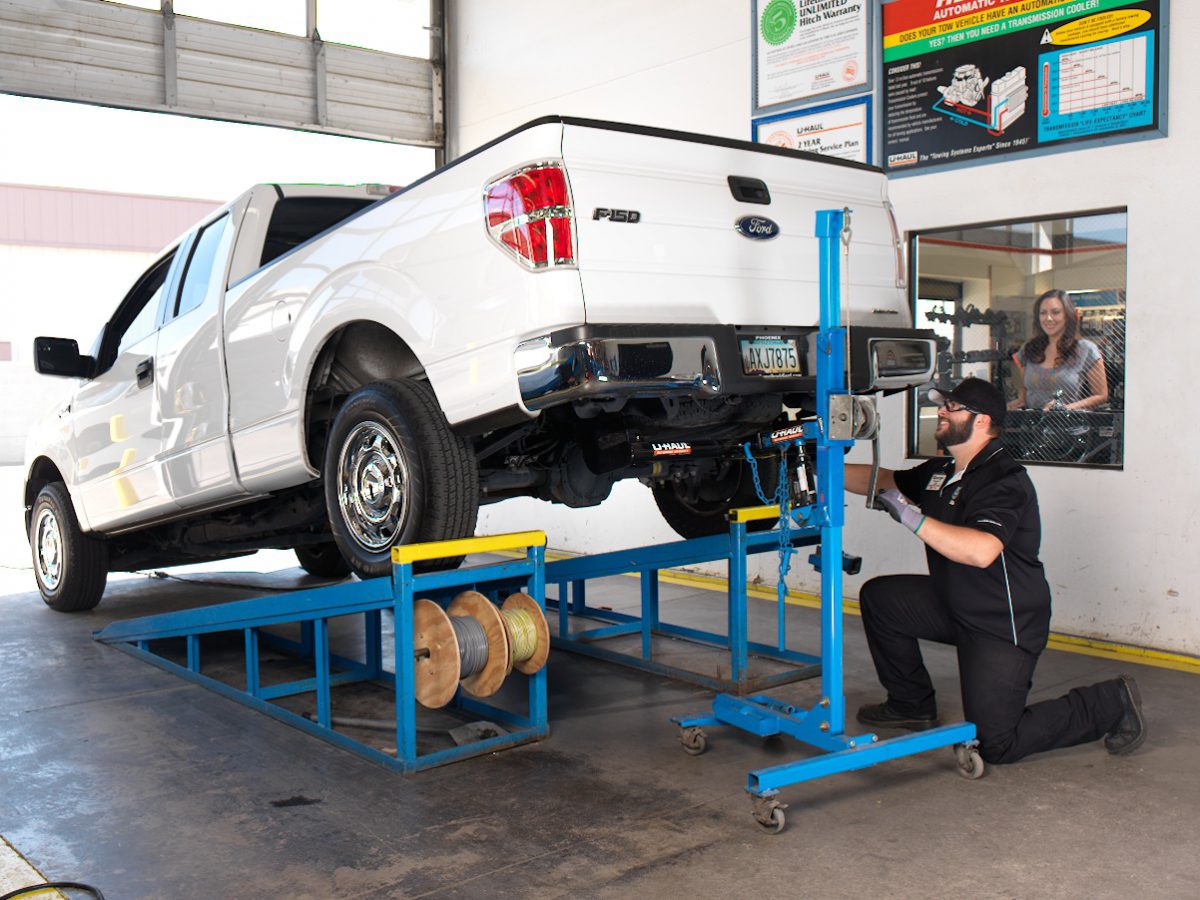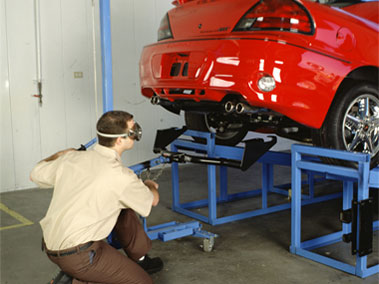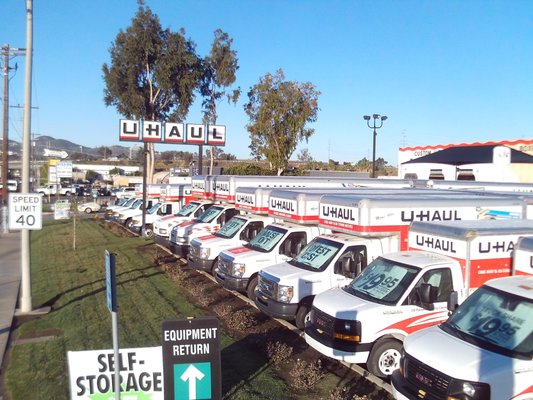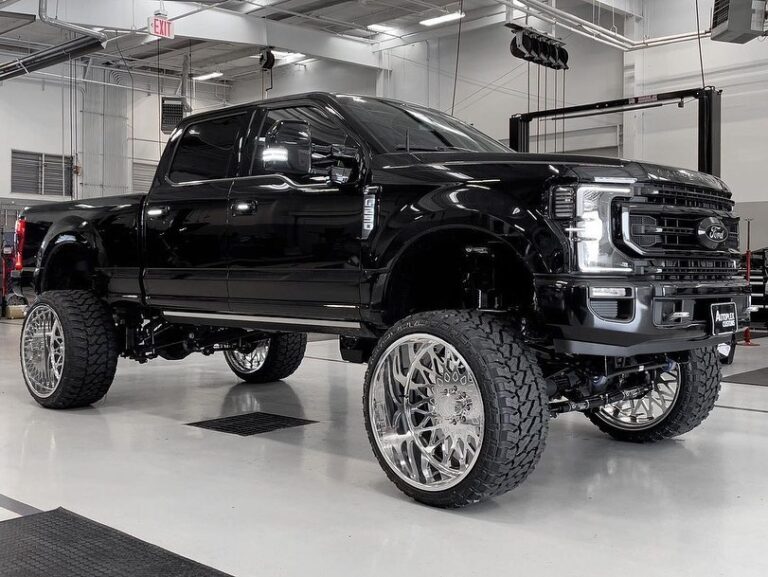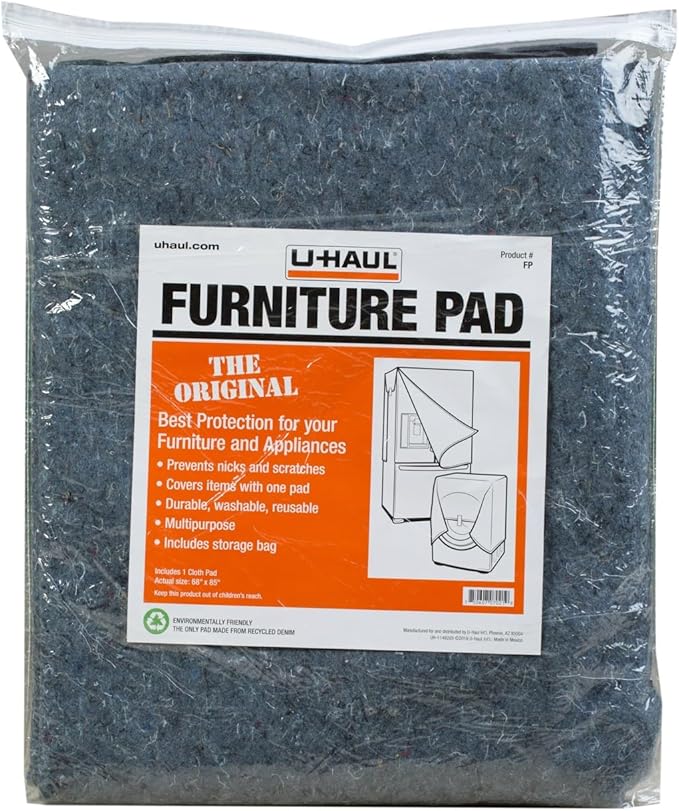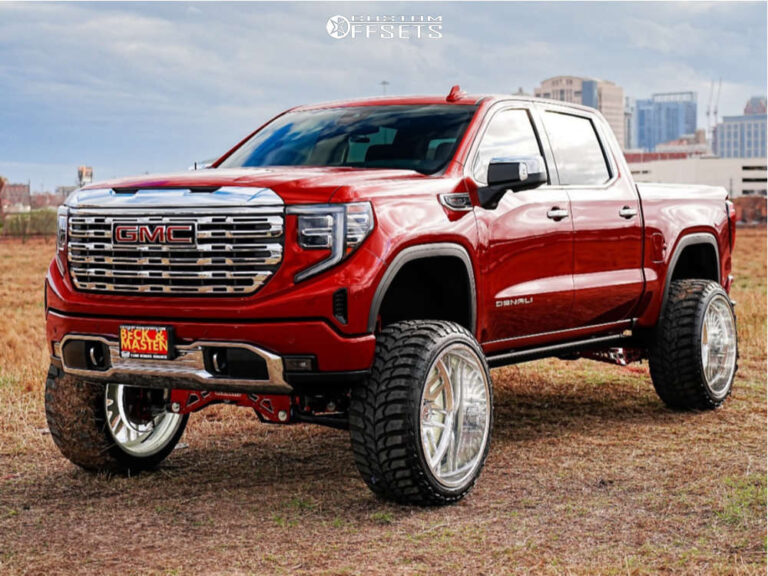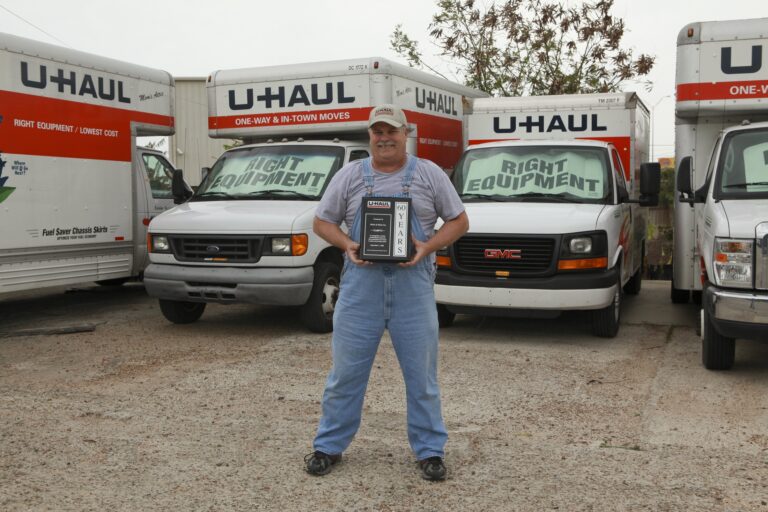Mastering the Road Ahead: A Comprehensive Guide to U-Haul Hitch Installation
Mastering the Road Ahead: A Comprehensive Guide to U-Haul Hitch Installation
The open road beckons, and with it, the potential for new adventures, successful moves, or practical utility tasks. But to truly unlock your vehicle’s towing capabilities, a reliable hitch is essential. When it comes to professional and accessible hitch installation services, U-Haul hitch installation stands out as a go-to solution for countless drivers. This guide will delve deep into everything you need to know about getting a hitch installed at U-Haul, from understanding the process and benefits to practical advice and common queries.
A hitch, at its core, is a mechanical device that connects a towing vehicle to a trailer, enabling the safe and secure transport of various loads. Whether you’re planning a cross-country move with a U-Haul trailer, hauling a boat to the lake, or simply need to attach a bike rack, a properly installed hitch is non-negotiable for safety, legality, and peace of mind. U-Haul, a household name in moving and storage, extends its expertise to vehicle customization, offering professional hitch installation services that leverage their extensive network, certified technicians, and quality products. Understanding this service is crucial for anyone looking to safely and effectively expand their vehicle’s functionality.
Understanding U-Haul Hitch Services: Why Choose the Experts?
Opting for U-Haul for your hitch installation provides a blend of convenience, expertise, and reliability that is hard to match. Their nationwide presence means you’re likely to find a service center nearby, and their streamlined process is designed to get you on the road quickly and safely.
Why U-Haul Stands Out:
- Expertise and Experience: U-Haul has been in the towing business for decades. Their technicians are trained specifically in hitch installation, understanding the nuances of different vehicle makes and models.
- Quality Products: U-Haul uses reputable hitch brands and offers a wide range of hitch classes to suit various towing needs, ensuring durability and performance.
- Convenience: With thousands of locations, scheduling an appointment is easy, and their systems are designed for efficiency, often providing same-day or next-day service.
- Warranty: U-Haul typically backs its hitch installations with a lifetime warranty on parts and labor, offering significant peace of mind.
- Comprehensive Service: Beyond just the hitch, they can also install the necessary wiring harnesses, brake controllers, and offer essential towing accessories.
Types of Hitches Offered by U-Haul:
U-Haul primarily installs receiver hitches, categorized by "Class," which indicates their maximum gross trailer weight (GTW) and tongue weight (TW) capacities.
- Class I (Light Duty): Up to 2,000 lbs GTW / 200 lbs TW. Ideal for bike racks, cargo carriers, or very small trailers.
- Class II (Medium Duty): Up to 3,500 lbs GTW / 350 lbs TW. Suitable for smaller utility trailers, jet skis, or pop-up campers.
- Class III (Heavy Duty): Up to 8,000 lbs GTW / 800 lbs TW. The most common class, perfect for mid-sized utility trailers, small boat trailers, and most U-Haul moving trailers.
- Class IV (Super Duty): Up to 10,000 lbs GTW / 1,000 lbs TW. For larger trailers, car haulers, and heavier boats.
- Class V (Extreme Duty): Up to 17,000 lbs GTW / 1,700 lbs TW. Designed for heavy-duty trucks and SUVs towing very large trailers or multi-vehicle setups.
Understanding your vehicle’s towing capacity and the weight of what you intend to tow is paramount in selecting the correct hitch class.
The U-Haul Hitch Installation Process: What to Expect
Getting a hitch installed at U-Haul is a straightforward process designed for customer convenience.
1. Pre-Installation Preparation:
- Research Your Needs: Determine what you plan to tow to estimate the required hitch class. Consult your vehicle’s owner’s manual for its maximum towing capacity.
- Online Quote & Appointment: Visit the U-Haul website (a good starting point is their official hitch installation page, though I cannot provide live links, search for "U-Haul hitch installation" or for the most accurate information). Input your vehicle’s year, make, and model. The system will recommend suitable hitches and provide an estimated cost for parts and labor, including wiring.
- Schedule Your Appointment: Choose a convenient date, time, and location.
2. The Installation Day:
- Vehicle Drop-off: Arrive at your scheduled time. A U-Haul technician will confirm your order and inspect your vehicle.
- Professional Installation: The technician will securely attach the receiver hitch to your vehicle’s frame. This often involves drilling into the frame (if not pre-drilled by the manufacturer) and bolting the hitch into place. They will also install the necessary wiring harness to ensure your trailer’s lights (tail lights, brake lights, turn signals) function correctly. For heavier trailers, brake controllers might also be installed.
- Quality Check & Testing: Once installed, the technician will perform a thorough check, including testing the wiring with a trailer simulator to ensure everything is operational.
3. Post-Installation:
- Instruction and Guidance: The technician will explain the newly installed system, discuss towing best practices, and answer any questions you may have.
- Accessories: You can purchase essential towing accessories like ball mounts, hitch balls, and hitch locks directly from U-Haul.
- Warranty Information: You’ll receive documentation regarding your hitch and installation warranty.
Benefits of Professional Hitch Installation
While some mechanically inclined individuals might consider a DIY approach, professional hitch installation offers significant advantages, especially when performed by experts like U-Haul.
- Uncompromised Safety: This is the paramount benefit. A professionally installed hitch ensures all bolts are torqued correctly, the hitch is properly aligned, and the wiring is secure, drastically reducing the risk of trailer detachment or electrical failures.
- Structural Integrity: Improper installation can damage your vehicle’s frame, leading to costly repairs down the line. Professionals know how to attach the hitch without compromising your vehicle’s structural integrity.
- Legal Compliance: Many jurisdictions have specific requirements for trailer lighting and braking. Professional installation ensures your setup meets these legal standards.
- Peace of Mind: Knowing that certified technicians have handled the job provides confidence, whether you’re towing across town or across the country.
- Warranty Protection: U-Haul’s warranty covers both the hitch and the labor, protecting your investment. DIY installations typically void warranties on parts.
- Time and Effort Savings: Installing a hitch can be complex and time-consuming, requiring specialized tools. Professional service saves you time and the hassle.
Factors to Consider Before Your U-Haul Hitch Installation
Before you head to U-Haul, a few key considerations will ensure you get the right setup for your needs.
- Your Vehicle’s Towing Capacity: This is the absolute maximum weight your vehicle can safely tow. Never exceed this limit. Your owner’s manual will provide this information.
- Gross Trailer Weight (GTW): The total weight of the trailer plus its cargo.
- Tongue Weight (TW): The downward force exerted by the trailer’s tongue on the hitch ball. This should typically be 10-15% of the GTW.
- Trailer Type and Usage: Are you towing a small utility trailer, a boat, a camper, or a specific U-Haul rental trailer? Different trailers may have different hitch height requirements or require specific accessories like weight distribution hitches (though less common for standard U-Haul installations).
- Wiring Needs: For any trailer with lights, a wiring harness is essential. For trailers over a certain weight (usually 1,500-2,000 lbs, depending on state law), trailer brakes and a brake controller in your vehicle may also be required. Discuss these needs with U-Haul during your consultation.
- Budget: Factor in the cost of the hitch, installation labor, wiring, and any necessary accessories (ball mount, hitch ball, hitch lock).
Tips for a Smooth U-Haul Hitch Installation Experience
- Book in Advance: Especially during peak moving seasons (spring/summer), appointments can fill up quickly.
- Be Specific About Your Needs: Clearly communicate what you plan to tow. This helps U-Haul recommend the most appropriate hitch class and accessories.
- Empty Your Vehicle: Remove any unnecessary items from your trunk or cargo area to give technicians clear access.
- Inspect Thoroughly: Before driving away, visually inspect the installation. Ensure the hitch is straight, all visible bolts are secure, and the wiring looks tidy. Test the trailer lights if you have a trailer on hand or use their test equipment.
- Understand Maintenance: While hitches are generally low-maintenance, periodically check bolts for tightness and apply grease to the hitch ball to prevent rust and wear.
Common Challenges and Solutions
While U-Haul aims for a seamless experience, a few minor challenges can occasionally arise:
- Unexpected Costs: Sometimes, older vehicles may require additional modifications or specialized wiring not initially quoted. Solution: Discuss all potential costs and any vehicle-specific issues with the technician upfront.
- Installation Time Variances: While a standard installation might take 1-2 hours, complex wiring or rusted bolts can extend the time. Solution: Plan for a slightly longer wait time than estimated, especially for older vehicles.
- Hitch Compatibility: Rarely, a specific vehicle model might have limited hitch options. Solution: U-Haul’s online system is generally very accurate in identifying compatible hitches for your vehicle, mitigating this issue largely.
U-Haul Hitch Installation Price Table
Please note that prices are estimates and can vary significantly based on vehicle make/model, hitch class, geographical location, current promotions, and complexity of installation. This table provides a general range.
| Service/Item | Description | Estimated Cost Range (USD) | Notes |
|---|---|---|---|
| Hitch Receiver (Part) | |||
| Class I | 1.25" receiver, up to 2,000 lbs GTW | $150 – $250 | For light-duty towing, bike racks, cargo carriers. |
| Class II | 1.25" receiver, up to 3,500 lbs GTW | $175 – $300 | For small trailers, jet skis. |
| Class III | 2" receiver, up to 8,000 lbs GTW | $200 – $400 | Most common, versatile for many trailers, boats. |
| Class IV | 2" receiver, up to 10,000 lbs GTW | $250 – $500 | For larger trailers, car haulers. |
| Class V | 2" or 2.5" receiver, up to 17,000 lbs GTW | $300 – $600+ | Heavy-duty trucks/SUVs, very large trailers. |
| Installation Labor | Professional installation of the hitch receiver | $100 – $200 | Varies by complexity (drilling, vehicle type). |
| Wiring Harness | |||
| 4-Flat Connector (Part) | Basic trailer lights (tail, brake, turn) | $30 – $70 | |
| 4-Flat Connector (Install) | Labor to install 4-flat wiring harness | $50 – $100 | Varies by vehicle’s electrical system complexity. |
| 7-Way Connector (Part) | Includes 4-flat functions + auxiliary power, electric brakes | $70 – $150 | Required for trailers with electric brakes or auxiliary power. |
| 7-Way Connector (Install) | Labor to install 7-way wiring harness | $100 – $200 | More complex installation. |
| Brake Controller | |||
| Unit (Part) | Aftermarket unit for controlling electric trailer brakes | $100 – $250 | Essential for trailers with electric brakes over a certain weight. |
| Installation (Labor) | Labor to install and integrate brake controller | $75 – $150 | Requires wiring into vehicle’s electrical system. |
| Essential Accessories | |||
| Ball Mount | Connects hitch ball to receiver, various drops/rises | $20 – $50 | Must match hitch class and desired height. |
| Hitch Ball | Attaches to ball mount, various sizes (1-7/8", 2", 2-5/16") | $10 – $30 | Must match trailer coupler size. |
| Hitch Pin & Clip | Secures ball mount in receiver | $5 – $15 | |
| TOTAL ESTIMATED COST | (Hitch + Install + Wiring + Optional Brake Controller/Accessories) | $350 – $1200+ | Prices highly variable. Always get a specific quote from U-Haul for your vehicle and needs. |
Disclaimer: These are approximate costs for general informational purposes. Actual prices will vary based on your specific vehicle, location, and any additional services or parts required. Always obtain a detailed quote directly from U-Haul.
Frequently Asked Questions (FAQ) About U-Haul Hitch Installation
Q1: How long does a U-Haul hitch installation typically take?
A1: A standard hitch installation, including wiring, usually takes 1 to 2 hours. More complex installations or those requiring a brake controller may take longer, sometimes up to 3-4 hours. It’s always best to confirm the estimated time when you schedule your appointment.
Q2: Do I need a wiring harness with my hitch?
A2: Yes, if you plan to tow any trailer that requires lights (which most do for safety and legality), a wiring harness is essential to connect your vehicle’s electrical system to the trailer’s lights.
Q3: Can U-Haul install a hitch on any vehicle?
A3: U-Haul can install hitches on most cars, SUVs, and trucks. However, older or very unique vehicles might have limited options. Their online system will typically indicate compatibility when you input your vehicle’s information.
Q4: What is the warranty on U-Haul hitch installations?
A4: U-Haul typically offers a lifetime warranty on the hitch receiver and its installation labor, provided it was purchased and installed at U-Haul. It’s always wise to confirm the exact terms of the warranty at the time of purchase.
Q5: How do I know what class hitch I need?
A5: The hitch class you need depends on your vehicle’s towing capacity and the gross weight of the trailer you intend to tow. Always consult your vehicle’s owner’s manual for its maximum towing capacity, and factor in the weight of your loaded trailer. U-Haul technicians can also help you determine the appropriate class.
Q6: Can I bring my own hitch for U-Haul to install?
A6: While U-Haul prefers to install hitches purchased directly from them (to ensure quality and warranty coverage), some locations might install customer-supplied hitches. However, they typically will not warranty the part itself, only the labor, and there might be liability considerations. It’s best to call your local U-Haul center to inquire about their specific policy.
Conclusion: Tow with Confidence
Investing in a professionally installed hitch from U-Haul is an investment in your safety, convenience, and the expanded utility of your vehicle. From the initial online quote to the final inspection, U-Haul’s comprehensive service, experienced technicians, and robust warranty provide a reliable solution for all your towing needs. By understanding the process, considering your specific requirements, and following practical advice, you can ensure a smooth experience and hit the road with confidence, ready for whatever adventure lies ahead. Remember, safe towing begins with a properly installed hitch, and U-Haul is equipped to help you achieve just that.
